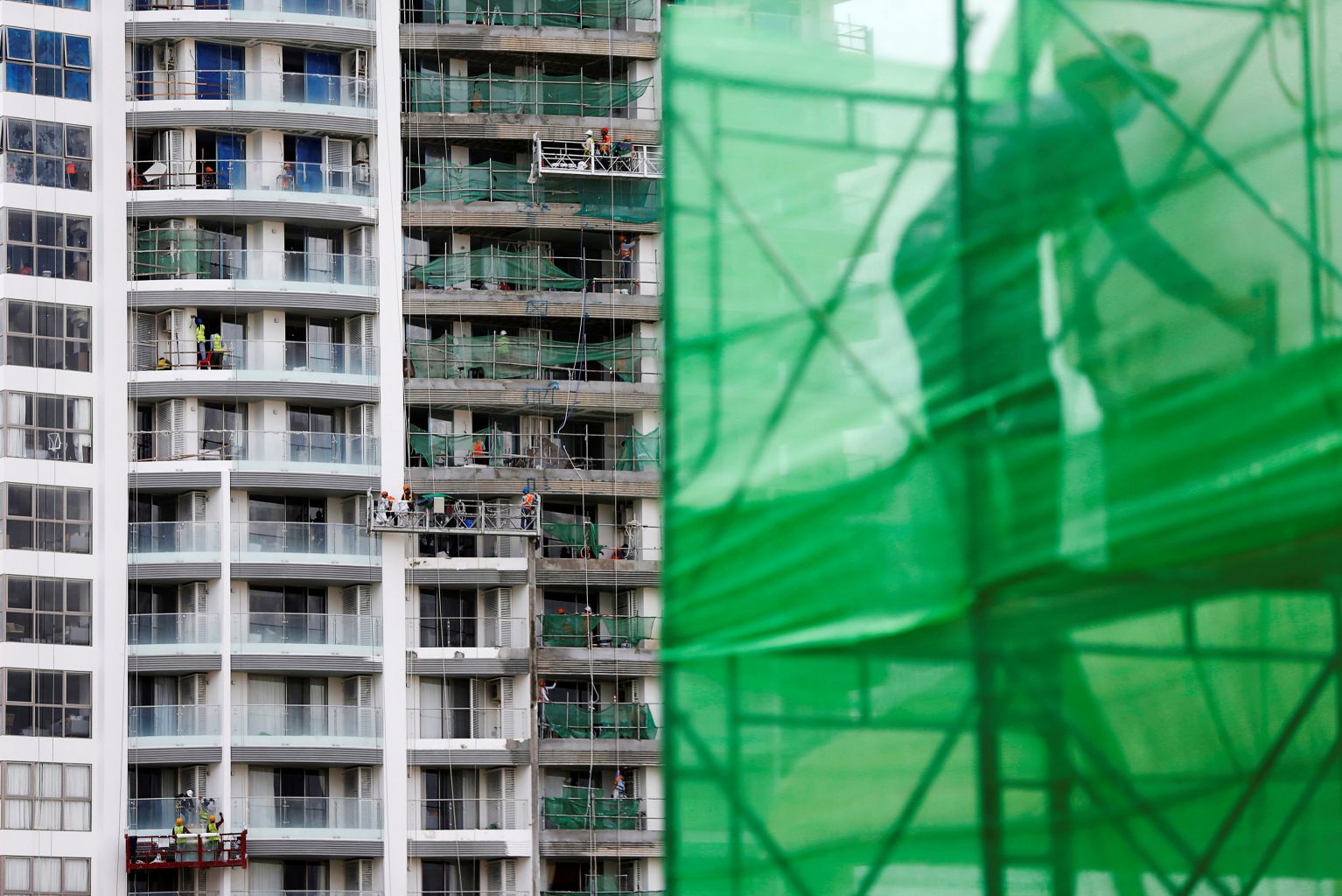Cambodia construction boom built on 'blood bricks' and slavery: Report
Sign up now: Get insights on Asia's fast-moving developments

Labourers work at a construction site in Phnom Penh, on Aug 28, 2018.
PHOTO: REUTERS
Follow topic:
PHNOM PENH (THOMSON REUTERS FOUNDATION) - Cambodia's construction boom is built in part with "blood bricks" manufactured by modern-day slaves, including children, researchers said on Tuesday (Oct 16).
Poverty fuelled partly by climate change has pushed tens of thousands of Cambodian families into bonded labour, making bricks for buildings in the capital, Phnom Penh, according to a report by researchers from London's Royal Holloway University.
"Tens of thousands of debt-bonded families in Cambodia extract, mould and fire clay in hazardous conditions to meet Phnom Penh's insatiable appetite for bricks," researchers said.
"Kiln owners repay farmers' debts and offer a consolidated loan. In return, farmers and their families are compelled to enter into debt bondage with the kiln owner until the loan is repaid."
Families surveyed had agreed to pay back loans of between US$100 (S$137) and US$4,000. The average was US$712 - a fortune in a country where the average annual income is US$1,230, according to the World Bank.
Those pushed into debt bondage often earned far less than the average, with climate change hitting harvests and pushing farming families into debt.
Cambodia is among the most vulnerable countries in the world to the effects of climate change, the report noted.
The country is also one of Asia's fastest growing economies, but inequality remains stark - two-bedroom apartments in the capital were up for sale at prices of US$260,000 and up, more than 200 years' wages for the average Cambodian, the report said.
Workers reported "respiratory illnesses driven by the inhalation of kiln fumes and brick dust without protective equipment, and limb amputation resulting from unsafe brick-moulding machinery".
When bonded labourers need to seek medical treatment or for other reasons, they must leave without their families to ensure they return, said the report, which was backed by the British government and the Economic and Social Research Council.
"Kiln owners showed a preference for families over single workers as they were apparently less likely to run away," according to the researchers.
Cambodia's labour minister released a statement last week warning businesses, including brick kilns, against using child labour and other forms of exploitation such as debt bondage.
The International Labor Organization (ILO) said working standards in construction had been neglected as advocacy groups and the government focused on the garment sector, a key driver of the economy.
Chuong Por, who coordinates the ILO's construction industry work, said the building boom had not so far attracted much attention.
"In the brick kiln sector, actually there is not enough inspection. That's why we cannot find out all the problems in the sector," she told the Thomson Reuters Foundation.

